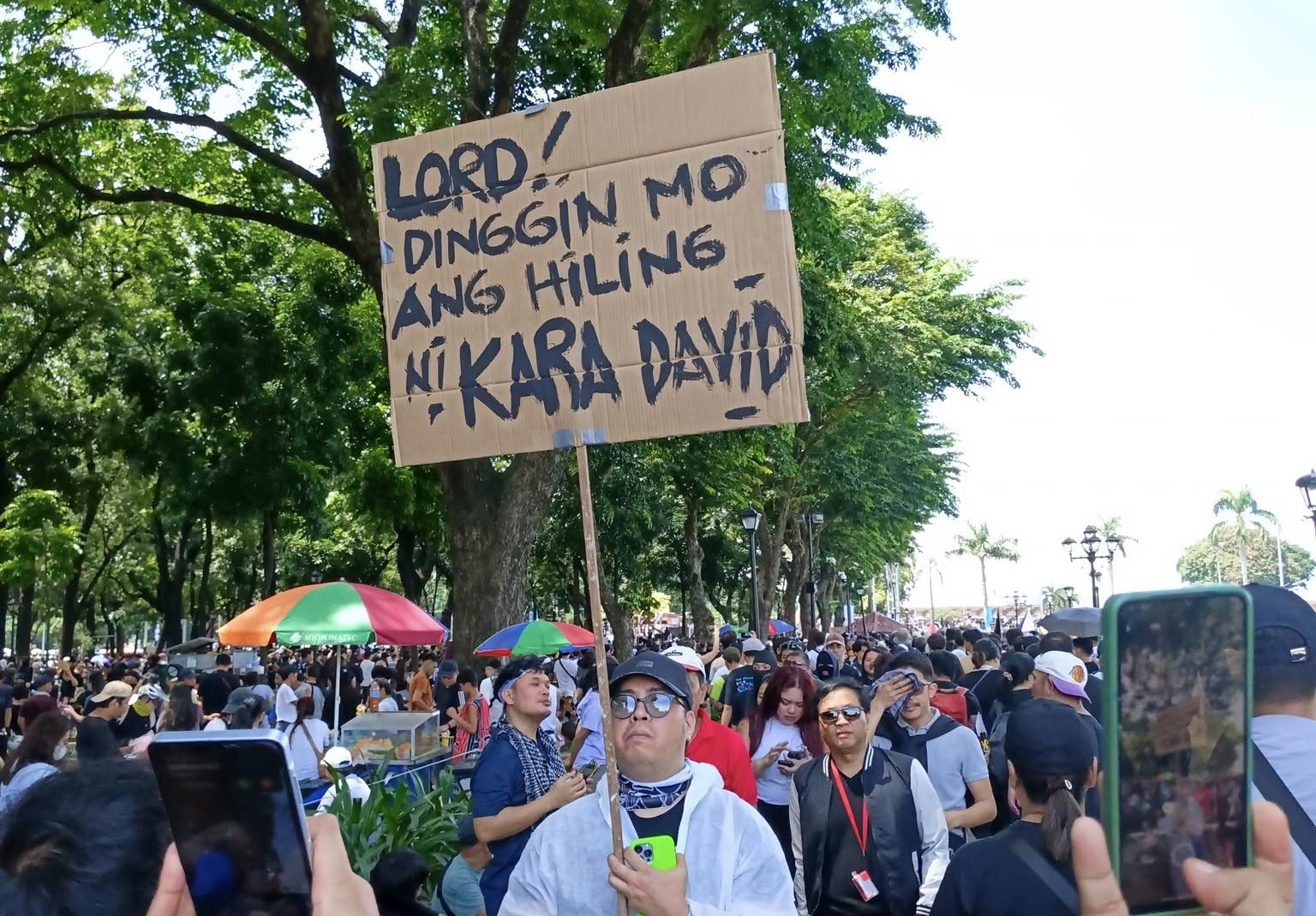The nation witnessed a powerful surge of public outrage as tens of thousands of Filipinos marched through the streets of Manila and other major cities, demanding accountability for what is now being described as one of the country’s largest corruption scandals in recent years — the alleged misuse of funds in flood control projects.
What began as murmurs of discontent over questionable infrastructure projects has grown into a full-scale movement. Branded as #BahaSaLuneta and #TrillionPesoMarch, the rallies brought together an estimated 50,000 people in EDSA People Power Monument and Luneta, creating a unified front against graft and abuse of power. Chants of “Panagutin ang mga magnanakaw!” (Hold the thieves accountable!) reverberated through the crowd, as protesters called for justice not only against low-ranking officials but also the highest offices of the land.
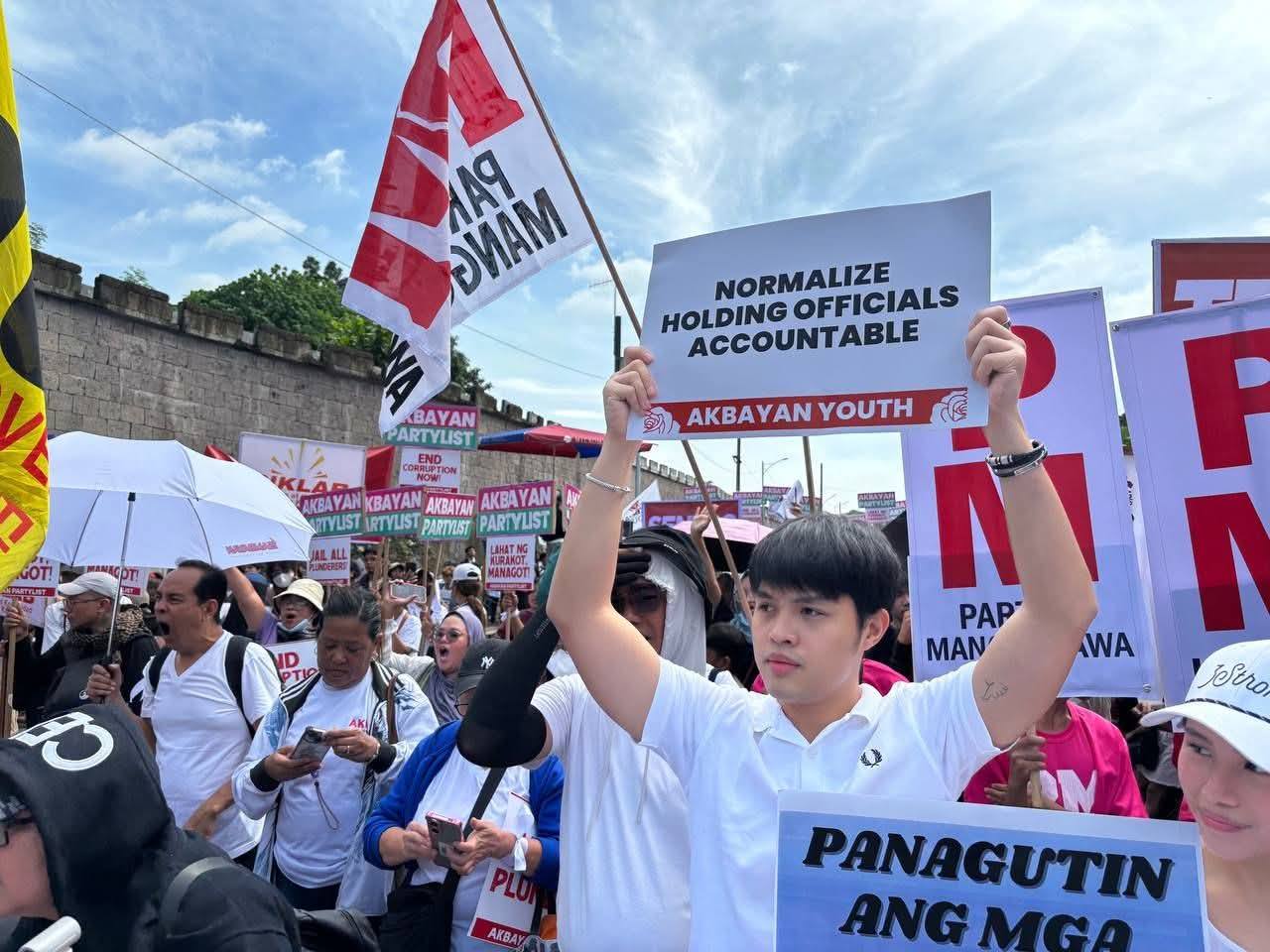
The controversy stems from a series of congressional and Senate revelations about “ghost projects” under the Department of Public Works and Highways (DPWH), where billions of pesos were allegedly diverted for personal gain. Critics say these projects, particularly those involving flood control, were either poorly constructed, left unfinished, or never existed at all. The revelations have sparked outrage in a country where floods remain a perennial problem and where ordinary citizens struggle daily to make ends meet.
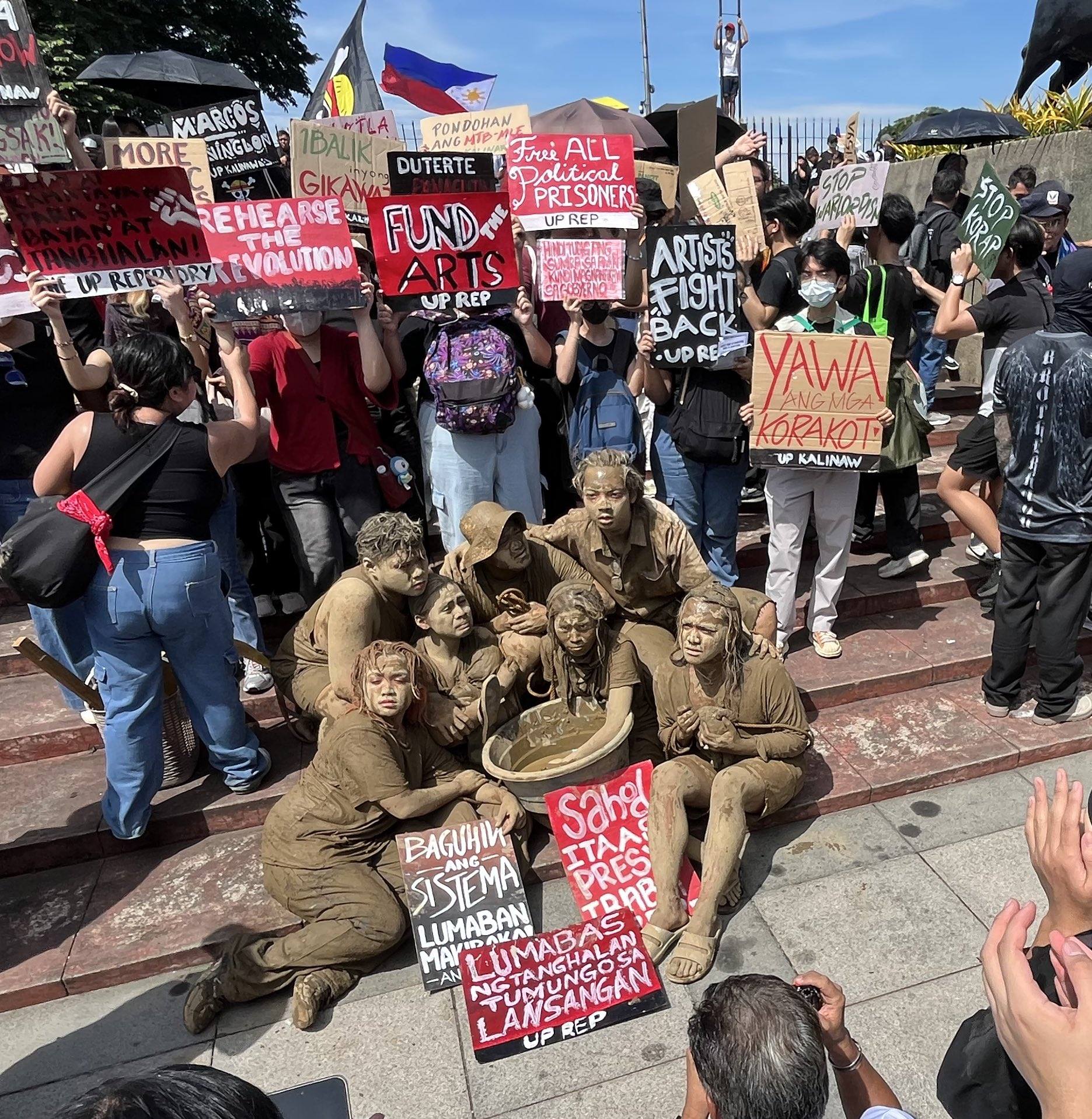
For many protesters, the issue cuts deep. The sight of billions allegedly pocketed while farmers lose crops, wage earners struggle with stagnant pay, and businesses are burdened by heavy taxes, has struck a nerve. “It is maddening that one late payment in taxes means instant penalties for us, while those who plunder public funds walk free,” one demonstrator said.
The rallying cry has been clear: accountability should know no boundaries. Protest leaders emphasized that responsibility must extend from local offices to the very top — including Vice President Sara Duterte and President Ferdinand “Bongbong” Marcos Jr. “The government is one whole body,” said a protest organizer. “Corruption spreads like branches from its roots. Everyone involved must face justice.”
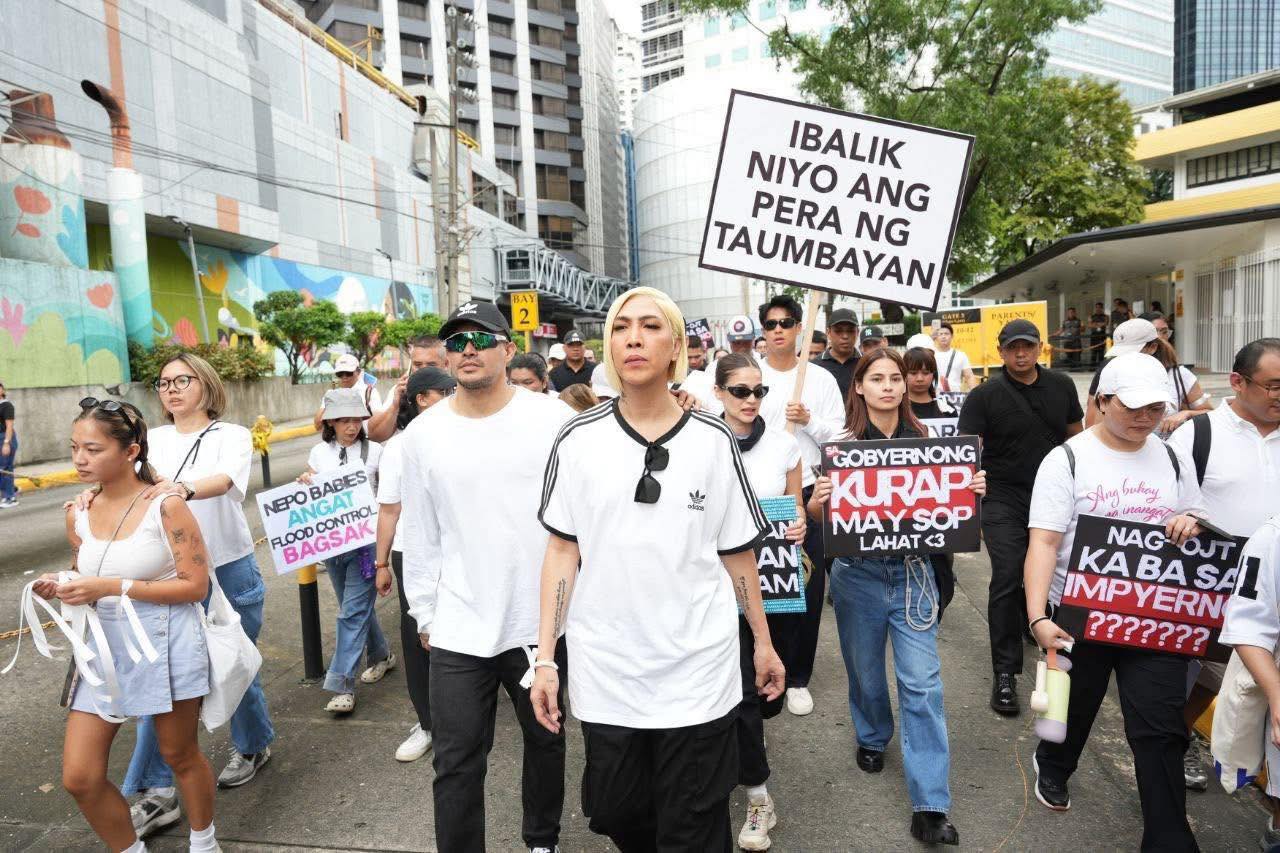
Adding weight to the protests were prominent figures from the entertainment industry. It’s Showtime hosts Vice Ganda and Anne Curtis joined demonstrators at Luneta, using their platforms to echo public frustration. Curtis, recognized as one of the country’s top taxpayers by the Bureau of Internal Revenue, emphasized the unfairness of hardworking citizens funding a system plagued by corruption.
Vice Ganda, never one to hold back, roused the crowd with sharp words. “Mga P—ng I—a niyo!” the comedian shouted, his anger resonating with thousands who cheered in unison. He later directed a challenge at President Marcos:
“We don’t expect action because we idolize you. We expect action because we pay your salary. If you want a lasting legacy, jail the thieves and reclaim the stolen wealth. That is what your real employers — the Filipino people — demand.”
The speech drew thunderous applause, reinforcing the sentiment that public officials are accountable not to themselves, but to the people who fund their positions through taxes.
Even as the rallies ended, the protest has not lost momentum. On social media, Filipinos continue to demand accountability, keeping the issue alive with hashtags, viral posts, and relentless scrutiny. A new wave of criticism has also targeted “nepo babies” — children and relatives of officials linked to the scandal, including influencers and known contractors allegedly tied to ghost projects. For many, the online campaign has become an extension of the physical protests, ensuring the issue remains impossible to ignore.
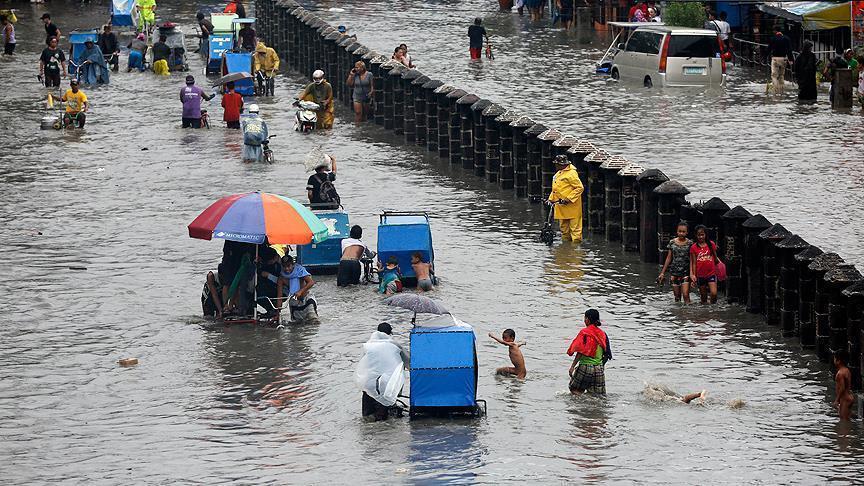
Behind the massive turnout lies the everyday struggle of ordinary Filipinos. Minimum wage earners lament paychecks that cannot keep up with inflation. Farmers share stories of heavy losses after typhoons, worsened by failed flood control structures. Small entrepreneurs talk about scraping together funds just to meet tax obligations. “Even the smallest purchase is taxed, and yet, we gain so little from the projects we supposedly fund,” one protester said, echoing a sentiment widely felt.
Recent typhoons have also exposed the fragility of infrastructure. Instead of protecting communities, substandard projects have worsened flooding. For many, it is nature itself that revealed the truth about corruption. “Every storm uncovers the failures of these projects. It’s as if the floods themselves are testifying against the government,” another protester remarked.
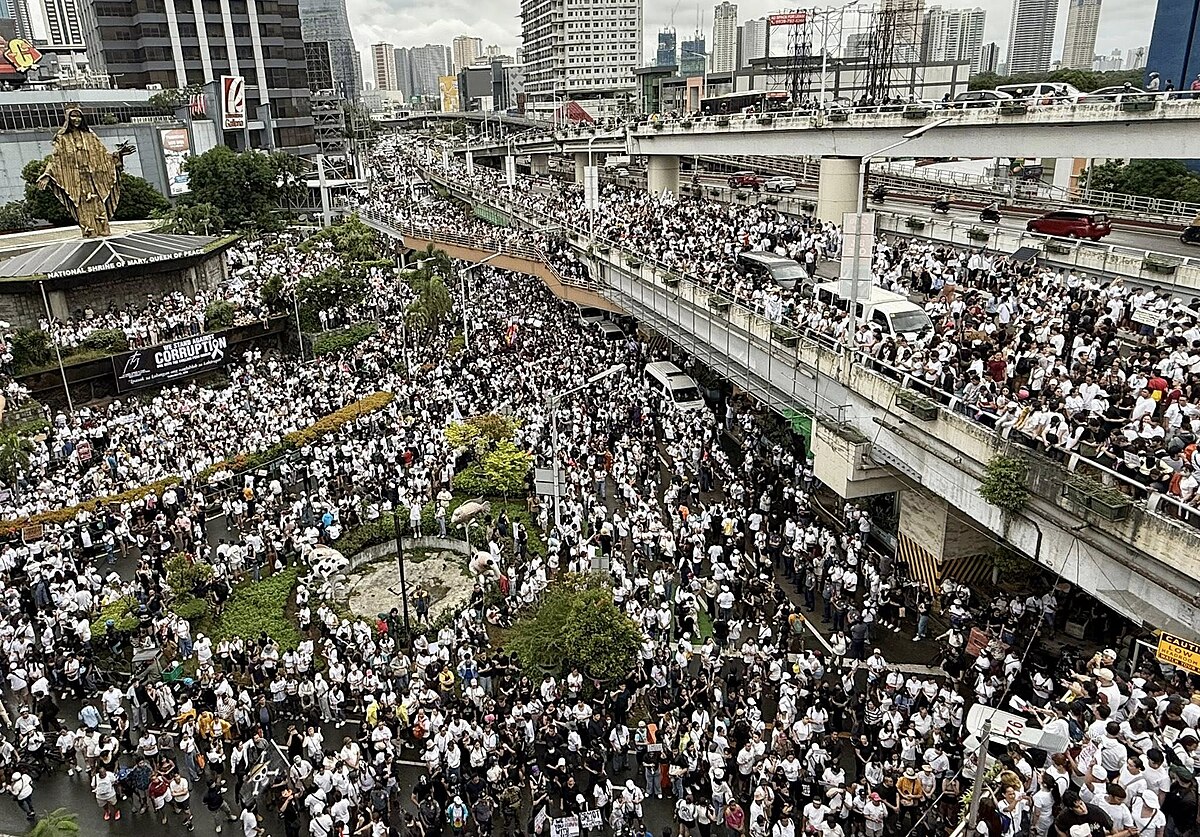
The rallies, both on the ground and online, represent more than a moment of outrage. For many, they symbolize a demand for systemic change — for a government that prioritizes public service over personal gain, and for leaders who treat taxpayers as employers rather than subjects.
“This should be a lesson to all voters,” said one speaker at Luneta. “We must choose leaders who put the people first, not themselves. They are here to serve us, not the other way around. Who are they at the first place?”
Whether the movement will lead to concrete accountability remains uncertain. But what is clear is the strength of public resolve. For the thousands who marched under the rain and heat, and for the millions watching closely, the message is unshakable: corruption has gone unchecked for too long, and it is time for those in power to answer to the people.
